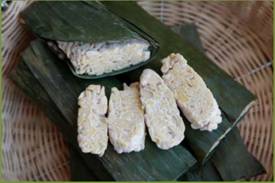Fermented foods act as natural fertilizers, if you will providing nutrients and promoting growth of healthy bacteria in your digestive tract.
For ages, humans have used fermented foods to improve intestinal health. In fact, people of Bulgarian and Asian descent are known for their longevity and their consumption of fermented foods.
Traditionally fermented foods contain living micro-organisms that replenish the friendly bacteria in your digestive tract.
 A few of the foods in this group include:
A few of the foods in this group include:Fermented milk
Natto
Miso
Kimchee
Tempeh
Kefir
Yogurt
Olives
Sauerkraut
Pickles
It is important to note that traditionally fermented foods are not the equivalent of the same foods, commercially processed.10 The only way to insure you're consuming the real thing is to prepare your own fermented foods at home.

The word probiotics means 'for life.' The dietary supplement was invented by Elie Metchnikoff, a Russian physiologist and Nobel prize winner. Metchnikoff was the first to suggest that consuming acid-producing live organisms maintained the vitality of your large intestine, leading to a longer and healthier life.12
 Like those found in traditionally fermented foods, the live micro-organisms in probiotic supplements help to replenish and maintain the friendly bacteria in your intestinal tract. Good bacteria drive down the pH of your gut, which creates an inhospitable environment for bad bacteria. The result is that the good guys flourish and the bad guys are kept in check.
Like those found in traditionally fermented foods, the live micro-organisms in probiotic supplements help to replenish and maintain the friendly bacteria in your intestinal tract. Good bacteria drive down the pH of your gut, which creates an inhospitable environment for bad bacteria. The result is that the good guys flourish and the bad guys are kept in check.
How often should you take a probiotic supplement? Taken daily, probiotics will help ease any current digestive upsets you're experiencing and will also act to maintain the bacterial balance in your gut longer term.
What you should look for in a probiotic supplement:
No need for refrigeration
Long shelf life
Can survive stomach acid so that it reaches your small intestine
Stays resident in your digestive tract long enough to be effective
 Like those found in traditionally fermented foods, the live micro-organisms in probiotic supplements help to replenish and maintain the friendly bacteria in your intestinal tract. Good bacteria drive down the pH of your gut, which creates an inhospitable environment for bad bacteria. The result is that the good guys flourish and the bad guys are kept in check.
Like those found in traditionally fermented foods, the live micro-organisms in probiotic supplements help to replenish and maintain the friendly bacteria in your intestinal tract. Good bacteria drive down the pH of your gut, which creates an inhospitable environment for bad bacteria. The result is that the good guys flourish and the bad guys are kept in check.How often should you take a probiotic supplement? Taken daily, probiotics will help ease any current digestive upsets you're experiencing and will also act to maintain the bacterial balance in your gut longer term.
What you should look for in a probiotic supplement:
No need for refrigeration
Long shelf life
Can survive stomach acid so that it reaches your small intestine
Stays resident in your digestive tract long enough to be effective

No comments:
Post a Comment